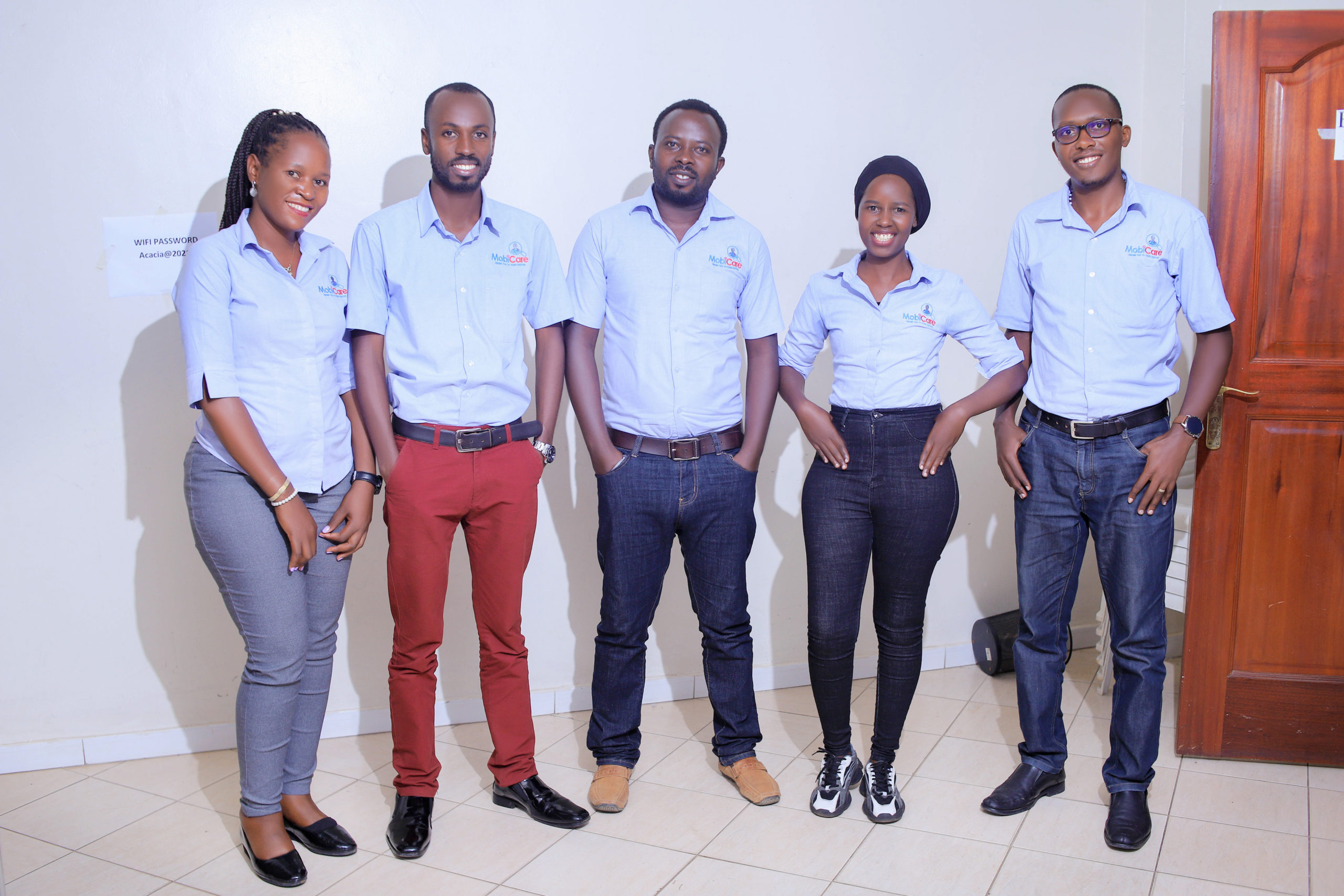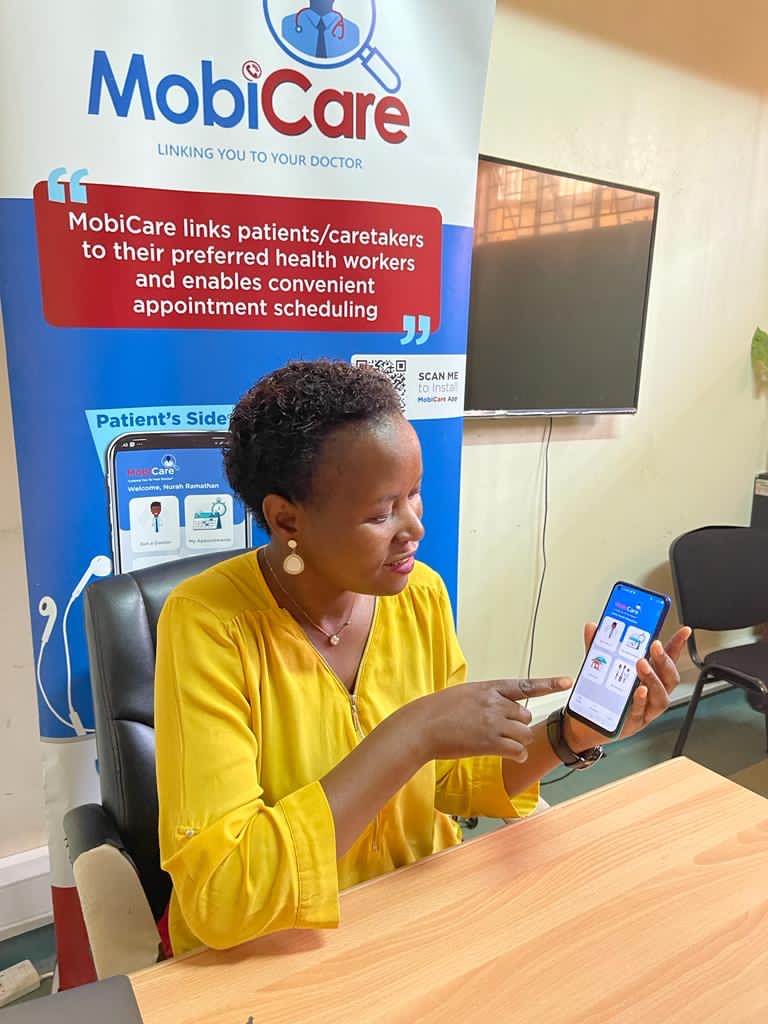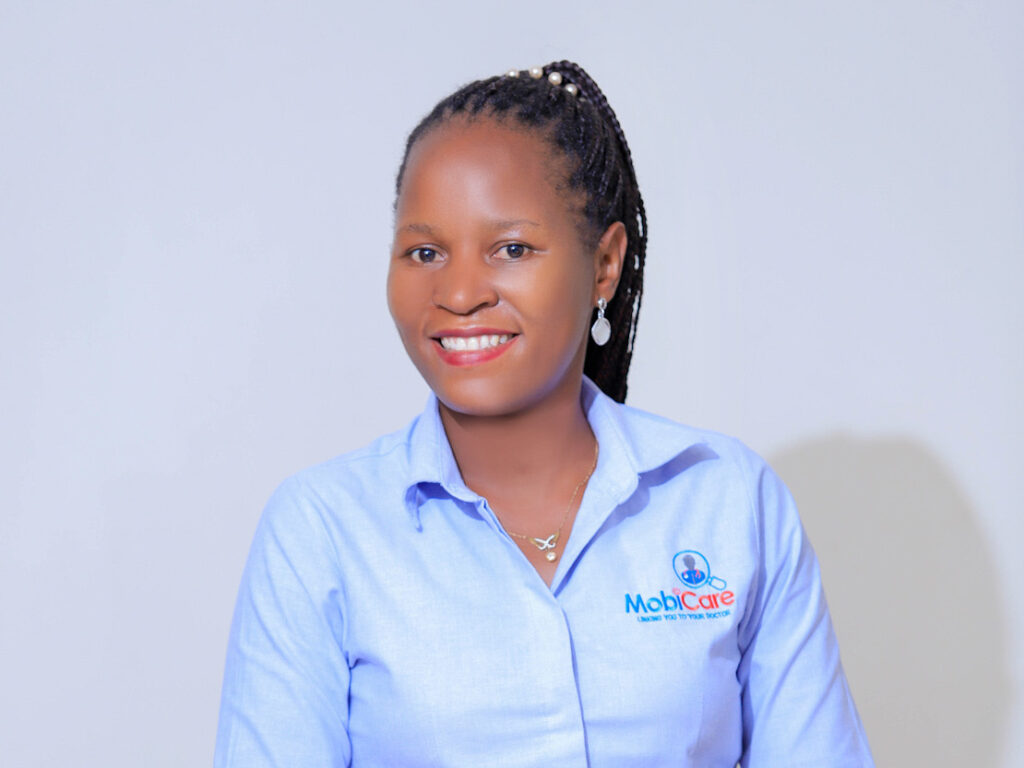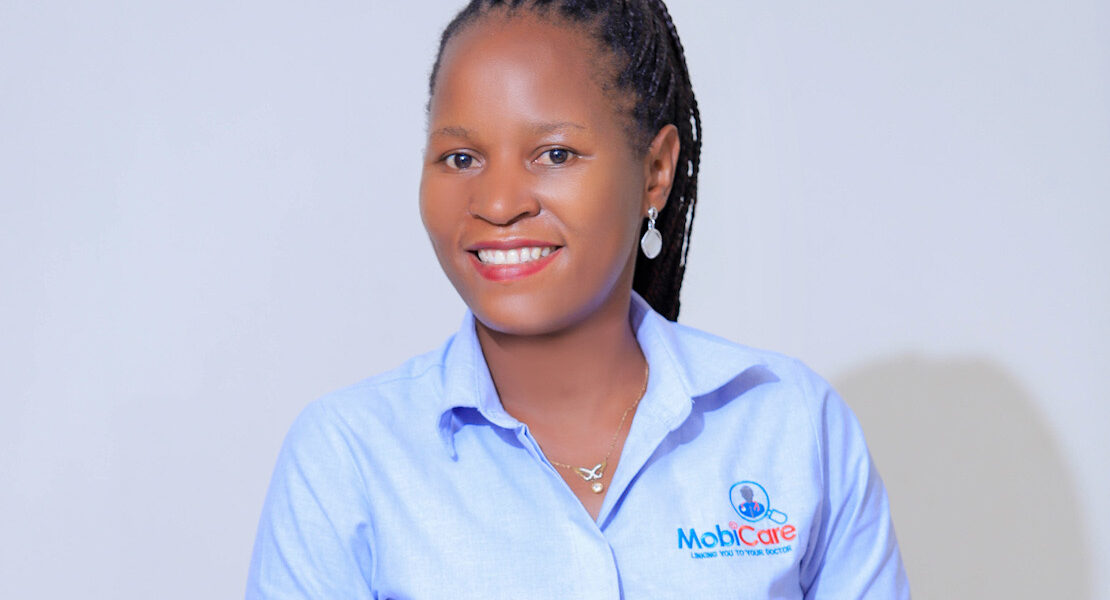Nuriat Nambogo went through a tragic health experience due to failure to get timely access to a health specialist, she is now tapping into technology to help patients and caretakers seamlessly schedule appointments with doctors.
“I was about three months pregnant when I developed a complication. I went to a hospital, but the condition required me to be seen by a gynaecologist”, She tells GLIM.
“However, the gynaecologist that was supposed to be on duty had not worked.” She was instead referred to another health facility but wasn’t successful either. “I had to wait until the next day to see the first gynaecologist but unfortunately by the time they saw me I had lost the baby.”
Nuriat says she related her experience to thousands of others who have gone through the same predicament, waiting in long queues to see a doctor but in vain.
“We have a few specialists in Uganda and, like any other African country, the doctors to patients ratio is not good. It’s hard to find a paediatrician stationed in just one health facility. They usually work in a government health facility and other private health facilities. But as patients, we don’t have access to their schedules.”
According to a 2022 report published in the British Medical Journal, Uganda’s doctor-patient and nurse-patient ratios stand at approximately 1:25 000 and 1:11 000 respectively. This is way below the WHO recommended doctor-patient ratio of 1:1000.
Nuriat rallied a few of her work colleagues at the Consortium for Affordable Medical Technologies (CAMtech) at Mbarara University of Science and Technology, to embark on developing a solution; the MobiCare app.
“We piloted it and did a feasibility study first, where we engaged patients and health workers in private health facilities to give us feedback on how the application was presented. We used this feedback to improve on how it appeared, and when we had a better version, we went on to seek approval for use.”

Available on the Google Play store, Mobicare is a health mobile application that links patients to the right doctors for appropriate consultation and treatment through a convenient appointment scheduling system. “Doctors record their schedules for the different health facilities they work at and patients registered on the app have access to this information that they use to request an appointment,” Nuriat says.
Besides appointment scheduling, the app offers patients the convenience to book dates for review and allows doctors to do a follow-up with patients undergoing treatment through chat, video or voice call.
To ensure compliance with the standard medical practice, procedures and regulations on the platform, Nuriat says they have been working closely with the different medical licensing and ethical bodies in Uganda, including Mbarara University Research Ethical Committee and the Uganda National Camp For Science and Technology.
“We have also worked with the Uganda Medical and Dental Practitioner Counsel which gave us licenses of all registered doctors in Uganda. So once a doctor registers, they are requested to put their practising license number, MobiCare then verifies this information before we can allow the doctor to continue with the registration and add their details.”
The app has so far been deployed in six health facilities in Mbarara district, Western Uganda with about 1000 patients and over 70 doctors registered on the platform.
In recognition of her work with Mobicare, Nuriat has been the recipient of several awards and recognitions including the 2021 Africa Young Innovators For Health Award. Mobicare has also received grants including $7,000 from the 2018 CAMtech Accelerator program, and 100M grants from the Ministry of ICT’s National ICT Initiative Support Program. Recently, Nuriat showcased the innovation at the 2022 Geneva Health Forum.
Nuriat attributes MobiCare’s success thus far to a dedicated and passionate team, and continuous improvement of the application based on feedback from end users. “With software development, every time you pilot a project, there are changes that are proposed, and whenever you improve, you get more customers that love what you have added. So if something is proposed, we get down to it as a team.”
However, she says the journey has not been without its downs. “Sometimes you get negative comments about what you’re doing and you feel like what you’re doing is not right.“
“The other challenge we are facing is that the application works only on Android but we are looking at developing an iOS version that can work on iPhones because we found out that there are many doctors and patients who have iPhones. Also, technology is still new in Uganda, so we need to do a lot of advertisements both at the doctor’s and the patient’s end because the doctors are still used to scheduling appointments using phone calls.” She says.

Nuriat and her team are currently developing a dashboard that will allow receptionists to book appointments on behalf of doctors, and looking to incorporate pharmacies on the app for convenient access to approved drugs that the respective hospitals may not have. “We are also seeking funding to help us deploy in the Central region where we have high hopes of uptake and usage.”
Looking ahead, Nuriat envisions a bright future for her and Mobicare. “I don’t see failures, I see successes. We are trying to address a global challenge, especially in Africa. So I see in the next years Mobicare being the biggest appointment scheduling system for health facilities.”
While Africa’s health sector faces several limitations, Nuriat believes it also offers an opportunity for innovative solutions and she is placing her bet on homegrown solutions. As a Research and Grants Manager at CAMtech, she is contributing to grooming the next generation of innovators by providing support and mentorship to several young innovators.
“We shouldn’t wait for the western world to think for us. If there’s something small you can contribute towards solving a certain challenge, please do it. Because it is beautiful when it comes from us.”
She advises other innovators to have the persistence to always get up after a failure, have a passionate team, get as much feedback as possible and be solution-oriented.
“As an innovator, sometimes you are investing in the time and money without any returns, but all you should look at is can this solution benefit its intended end users.”


